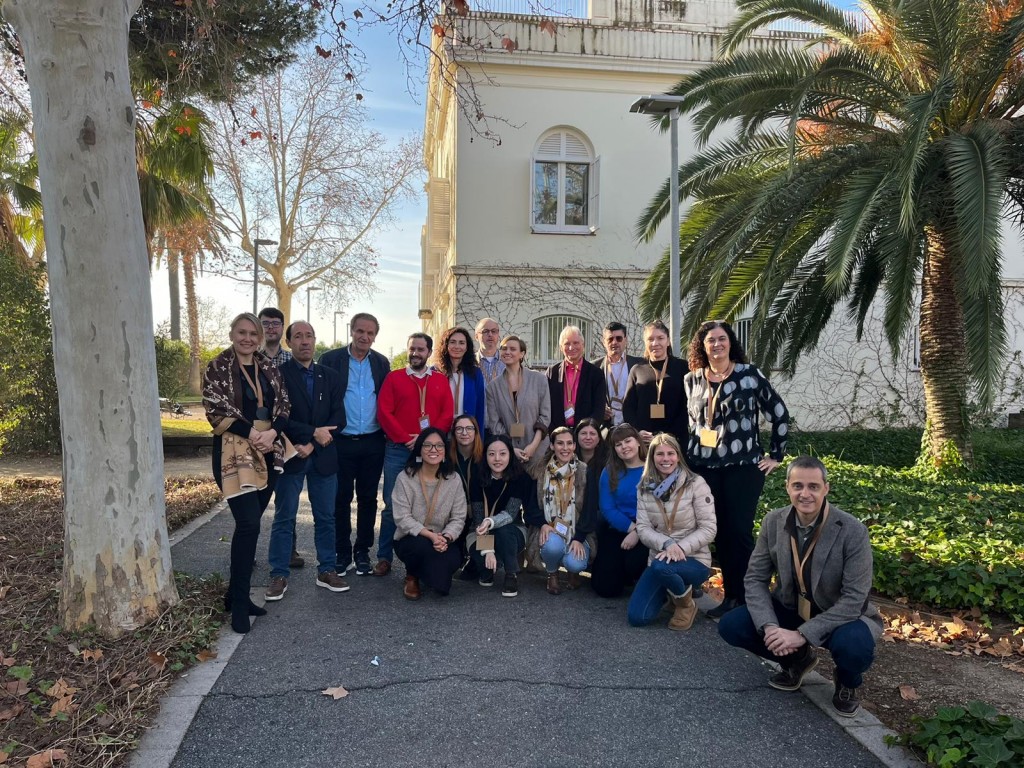The BEAGLE project, also known as the Blue Oceans Strategy for Value Creation, has officially embarked on its journey to revolutionise value creation through innovative methodologies. This project Funded by the European Union under Grant Agreement No. 101131728 (Granting authority: European Research Executive Agency) and led by Rovira i Virgili University, aims to demonstrate the improvement of productivity and efficiency in the processes of knowledge valorization and value creation in the link between academia and industry. Specifically, it focuses on increasing collaboration between universities and research centers, on one hand, and industry, on the other, to build a community in different countries and industrial sectors of Europe that identify new market niches and new sustainable ways of creating value.
The BEAGLE Project Consortium
Consists of nine partners spanning seven countries, including: Rovira i Virgili University, the University of West Bohemia (Czech Republic), and the University West (Sweden); the technological center Automotive Technology Centre of Galicia (Spain); and the participating clusters are Cleantech Bulgaria Foundation (Bulgaria), Nextmove (France), F6S Network Ireland Limited (Ireland), Association of Chemical Industry of the Czech Republic (Czech Republic), and UNIMOS Alliance (Poland).
 Consortium members participating in the kick-off meeting of the BEAGLE project.
Consortium members participating in the kick-off meeting of the BEAGLE project.
About the BEAGLE Project
During the three years of the project, BEAGLE’s mission is to construct a network of interdisciplinary experts and industry stakeholders to uncover 20 new market niches, known as Blue Oceans, and co-create 20 innovation proposals with specific roadmaps. By fostering collaboration among academia, technology centers, and business clusters, BEAGLE aims to facilitate the emergence of sustainable value chains and drive innovation in untapped markets.
Strategic Objectives & an Innovative Methodology
Over the duration of the BEAGLE project, emphasis will be placed on three key strategic objectives: discovering opportunities through co-creation activities, co-creating innovation proposals, and consolidating 20 new innovative market niches to attract investment. The consortium, comprised of key stakeholders involved in the innovation processes including universities, technology centers, and business clusters, will collaboratively develop action plans aimed at strengthening partnership between academia and industry. These action plans will facilitate the consolidation of collaborations between project partners. To achieve these objectives, the consortium will employ a co – creation experiment for disruptive innovation known as the Blue Oceans Strategy. This innovative methodology involves companies pioneering new demand in previously untapped markets, as opposed to competing within saturated markets with existing demand. By adopting this approach companies stand to realize a higher return on investment, thereby driving the creation of sustainable value. Leading the BEAGLE project, Professor and Researcher Xiaoni Li from the Department of Business Management at URV provides insights into the project’s ambitious goals: Quote: “This project begins an exciting adventure focused on disruptive innovation with blue ocean strategy. Through a co-creation experiment, BEAGLE aims to increase collaboration between universities and research centers on one hand, and industry on the other, to build a community in 7 different countries and industrial sectors of Europe that identifies new market niches and new sustainable ways of creating value.”
Implementation and Continuity
To facilitate project implementation, the BEAGLE project will utilize a dedicated marketplace linked to the F6S platform, which boasts 4.4 million members, to share results and lessons learned. This platform will ensure the project’s continuity beyond its funding period, fostering ongoing collaboration and knowledge exchange among stakeholders.